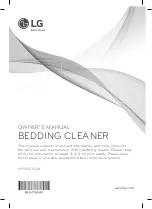
13
Solution Types
Water-based solutions are either slightly acidic or alkaline. They include detergents,
soaps and industrial cleaners designed to remove specific soils.
Acidic water-based solutions: remove rust, tarnish or scale. They range from mild
solutions that remove tarnish, to concentrated, and inhibited acidic solutions that
remove investment plaster, milk-stone, zinc oxide and rust from steel and cast iron as
well as smut and heat-treat scale from hardened steel.
Alkaline water-based solutions: include carbonates, silicates and caustics. These
cause emulsifying action, which keeps soil from redepositing on the cleaned surface,
and improves cleaning action in hard water.
Alkaline strength
Removes:
Mild
Light oils and greases, cutting oils and coolant compounds.
Mild to Strong
Heavy grease and oil, waxes, vegetable oils, inks, wax or fat-
base buffing and polishing compounds, milk residues and
carbohydrates.
Heavy-duty
Mill scale; heat-treat scale, corrosion or oxides.
Change the cleaning solution periodically. Cleaning solutions can become
contaminated with suspended soil particles which coat the tank bottom. This coating
dampens the ultrasonic action and reduces cleaning efficiency. Certain solutions will
cavitate better than others. Contact your local distributor for further information.
Heat and cavitation: increase the chemical activity of cleaning solutions. Some
materials may be damaged by this stronger chemical action. When in doubt, test run
samples of items to be cleaned. Caustic solutions: used to remove rust from steels,
metal alloy corrosion and a variety of tenacious soils.
Solution Amounts
Solution amounts may vary. The amount you use depends on the detergent and the
type of soil to be removed. Follow instructions on the solution container and refer to the
table below for the effects of solutions on metals.
Troubleshooting
If your cleaner does not operate satisfactorily, please check the tables below for
possible causes before calling your authorized service center.
Chemicals Harmful to Your Tank
The following chemicals will harm your ultrasonic tank and the action of ultrasonics and
higher operating temperatures will increase their chemical activity. Do not use these or
similar chemicals directly or in dilution in your ultrasonic tank or you will void your
warranty.






























